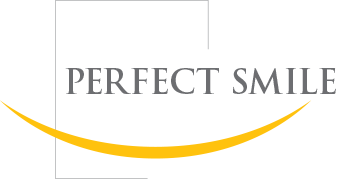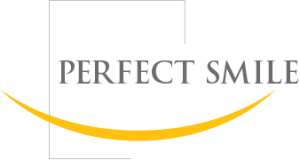Periodontitis (inflammatory disease of the gums and the bony surroundings of the tooth, also known as gum disease)
Earlier on it was believed that this condition, the resorption of the periodontal soft and hard tissues is not curable. Nowadays these theories seem to be refuted. The possible consequences (tooth loss, mobile teeth) can be stopped.
The first and most important step is prevention. For that we need to be aware of the reason of this disease. It is not a condition of the elderly and is not naturally occurring with age. In Hungary 90% of the population is affected. This number demonstrates the lack of proper oral hygiene and professional control. Fortunately most of the cases we notice are only at an early stage, therefore it is possible to keep all the teeth.
Symptoms:
- swollen, tender, bleeding gums
- mobile teeth
- halithosis (bad breath), pain
Prognostic signs: Due to a bad tooth brushing technique, plaque will accumulate on the hard surfaces and become calculus. In this rough, porous mass millions of bacteria continue to thrive. Their metabolism produces toxic substances that first cause an inflammation in the gum, then spread towards the bone, resulting in loss of attachment of the teeth. Pockets and subgingival calculus start to form around the root of the tooth. These pockets are spaces that can not be cleaned by a toothbrush or any device at home and are being invaded by bacteria. From this time on the process induces and maintains itself.
The least unpleasant consequence is spontaneous, painless movement of the teeth and sudden tooth loss.
If you experience bleeding of your gums for a longer time it is advisable to visit a specialist, because in this stage the problem will not resolve by any kind of toothpaste or special toothbrush.
Scaling and root planing
The overall treatment is divided into five bigger phases
1. The first step is an ultrasonic cleaning that removes all the supragingival tartar, discoloration and plaque. We teach our patients how to maintain this clean state.
2. The next step is to remove the subgingival calculus, which we call subgingival scaling and root planing. Under local anesthesia we try to remove every piece of subgingival tartar and smoothen the root surfaces that have become exposed in the pockets. In this phase we also remove all the structures that represent a plaque retaining surface (overhanging fillings, bad crown margins) and therefore hinder correct oral hygiene maintenance. The primer solution of periodontitis is subgingival root planing, because it solves the root of the problem. After this cleaning pockets get shallower as the gum recesses, inflammation heals and teeth tend to stabilize.
3. Ideally after the second phase, everything settles down and this healthy state can be preserved by 3-6 months regular ultrasonic cleaning.
In case the pathology has destroyed a larger amount of tissue that can occasionally be replaced, surgery is being performed. Thanks to science today we are able to recreate a certain amount of the lost tissues that have been damaged through inflammation. Our goal is to rehabilitate the original structures as much as possible.
4. The fourth step is regaining esthetics. Giving back one’s ability to masticate is sometimes only achievable through implants and prosthetics. If we don’t create a stable structure for function, relapse is often inevitable.
5. Last but not least let’s speak about control. For perio patients we recommend to attend a cleaning every 3-4 months where we also check for any relapsing pockets. We also go through oral hygiene routine and with time try to stretch the control appointments to twice a year.
This way we can avoid a relapse or any severe consequences.
Dos and don’ts after scaling:
During scaling we remove the deposits from underneath the gumline. As a result gingivitis calms down and the gum can recess. A slight and temporary tenderness to cold, savoury or sweet food may appear. This sensitivity will go away in a few days. It helps to use a toothpaste specially for sensitivity relief.
It is not forbidden to rinse, consume fresh dairy products or food that contains small seeds. But restriction from alcohol and tobacco still apply.
Postop antibiotics are only prescribed in severe cases.
Tenderness, sensitivity are only to be expected on and after the day of treatment. If the patient requests we can prescribe painkillers.
Call us for a free consultation
+36 1 212 4272
+36 20 515 6271



